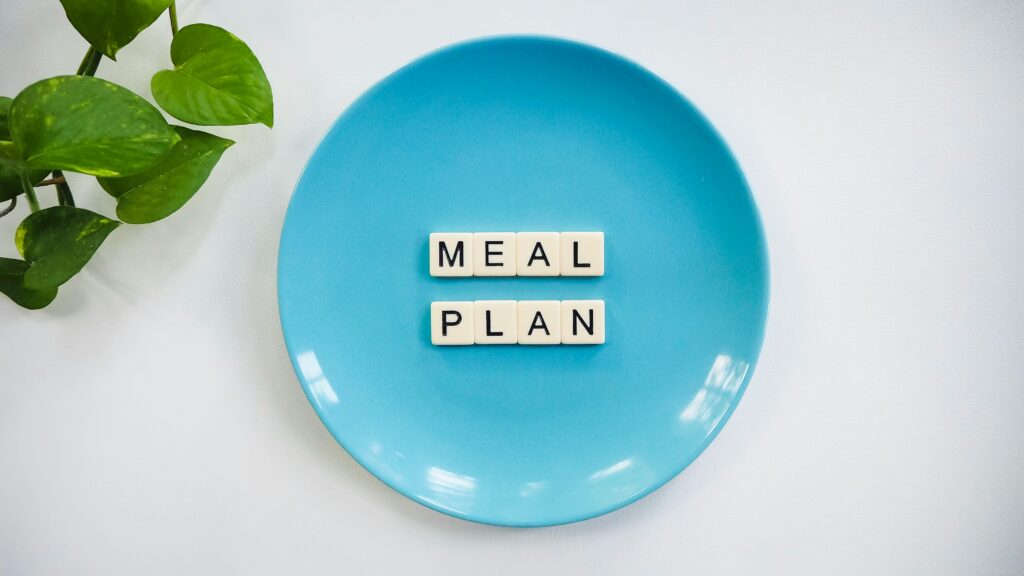Health Tips
balanced diet, calorie counting, debunking nutrition myths, detox diets, diet effectiveness, dietary balance, dietary recommendations, eating late at night, extreme diets, fad diets, food myths and facts, genetics and nutrition, gluten-free diet, healthy eating myths, individual dietary needs, Mayo Clinic nutrition myths, nutrient-rich foods, nutrition myths debunked, nutritional deficiencies, organic foods, performance nutrition, personalized health plans, personalized nutrition, supplements vs whole foods, sustainable lifestyle changes, weight management
JyotiSE
0 Comments
Debunking Myths: The Truth About Personalized Nutrition and Its Effectiveness
In today’s digital age, the buzz around personalized nutrition is louder than ever. With influencers, dieticians, and wellness brands promoting tailored eating plans, many believe it’s the ultimate key to health. But along with the hype comes a fair share of nutrition misinformation—from misleading claims to complete fabrications.
This article cuts through the noise by debunking nutrition myths, spotlighting evidence-based truths about tailored diets, and revealing the actual effectiveness of personalized nutrition.
What Is Personalized Nutrition?
Personalized nutrition refers to dietary recommendations tailored to an individual’s genetics, lifestyle, health status, and food preferences. Unlike fad diets that offer one-size-fits-all solutions, personalized nutrition considers unique biological markers to create plans that are nutrient-rich, sustainable, and tailored to meet individual needs.
By leveraging technology, DNA testing, and AI, nutritionists can design customized eating plans that focus on weight management, chronic disease prevention, performance optimization, and enhanced energy levels.

Why Personalized Nutrition Isn’t a Fad Diet
One of the biggest nutrition myths debunked today is that personalized nutrition is just another fad. This is far from true.
While fad diets promise rapid weight loss through extreme restrictions—like very low-carbohydrate diets or fat-free diets—they often lead to nutritional deficiencies, unsustainable habits, and eventual rebound weight gain. Personalized nutrition, on the other hand, focuses on long-term health rather than quick fixes.

Debunking Common Myths About Tailored Diets
Let’s examine some of the most common food myths and facts tied to personalized nutrition:
Myth 1: All Calories Are Equal
Truth: While calorie counting plays a role in dietary balance, the source of calories is crucial. Calories from nutrient-rich foods, such as vegetables, whole grains, and lean proteins, support bodily functions more effectively than those from processed or sugary foods.
Myth 2: Supplements Replace Whole Foods
Truth: Supplements can help address nutritional deficiencies, especially in those with food intolerances or restrictive diets. However, they are not a substitute for nutrient-rich whole foods. Your primary nutrition should always come from real, whole ingredients.
Myth 3: Extreme Diets Are Effective for Everyone
Truth: No diet works universally. What helps one person may harm another. For example, high-protein diets may boost performance in athletes but can worsen kidney issues in others. The principle of individual dietary needs is central to personalized health plans.
Myth 4: Eating Late at Night Causes Weight Gain
Truth: The timing of meals is less impactful than the total calorie intake and diet quality. While erratic eating can affect metabolism, gaining weight primarily depends on consuming excess calories rather than the timing of meals.
Myth 5: Organic Foods Are Always Healthier
Truth: While organic foods may contain fewer pesticides, they aren’t inherently healthier than conventional options. The focus should be on overall dietary balance, not just organic labels.
Myth 6: Detox Diets Eliminate Toxins
Truth: The liver and kidneys are your body’s natural detox systems. Detox diets often lack scientific evidence and can be harmful. A well-rounded, nutrient-rich diet supports detoxification better than any juice cleanse.
Myth 7: Gluten-Free Equals Healthier
Truth: For people with celiac disease or gluten sensitivity, a gluten-free diet is essential. But for others, it may result in missing out on crucial nutrients. This is a classic case of nutrition myths vs facts—removing gluten without medical necessity doesn’t automatically make your diet healthier.

The Effectiveness of Personalized Nutrition
Numerous studies support the effectiveness of personalized nutrition for a range of goals:
1. Managing Specific Diseases
For conditions such as diabetes, hypertension, and heart disease, personalized health plans can tailor macronutrient ratios, reduce inflammation, and manage blood sugar levels more effectively than generic diets.
2. Meeting Individual Needs
Food allergies, intolerances, and even cultural or ethical dietary preferences (e.g., vegetarianism, halal) can all be factored into tailored diets, making them easier to follow and more sustainable.
3. Optimizing Performance
Athletes or physically active individuals benefit greatly from performance nutrition, where their diets are calibrated to enhance energy levels, endurance, and post-exercise recovery. This strategy beats generic training meal plans hands-down.
4. Achieving Personal Goals
Whether it’s losing weight, improving sleep, or enhancing mental clarity, personalized nutrition targets the exact areas each person wants to improve—making sustainable lifestyle changes more achievable.

Misinformation on Social Media
One of the reasons food myths gain traction is because of nutrition misinformation on social media. Unqualified influencers often promote extreme diets, detoxes, or supplement-only regimens, creating confusion.
To combat this, seek advice from licensed nutritionists or registered dietitians. Check for evidence-based sources, such as the Mayo Clinic, NIH, or peer-reviewed journals, when researching nutrition myths and facts, or similar resources.
How to Know If a Personalized Diet Plan Is Right for You
Here are a few signs that a tailored diet might be helpful for you:
- You have chronic health conditions requiring dietary management.
- You struggle with yo-yo dieting or unsustainable plans.
- You want to improve energy levels or sleep quality.
- You need to optimize performance for sports or physical work.
- You have specific food allergies or intolerances.
- You’re looking for a plan based on science, not trends.
Final Thoughts
The era of generic, one-size-fits-all diets is fading. The future lies in personalized nutrition—a science-backed, data-driven approach to food and health that works with your body, not against it.
But to fully reap its benefits, we must debunk nutrition myths, discard fad diets, and embrace the reality that there is no single best diet. Instead, there is your best diet—uniquely tailored to you.
Don’t fall for the hype. Dig deeper. Ask questions. Fact-check misconceptions about tailored diets, and remember: your health deserves more than trendy shortcuts.














